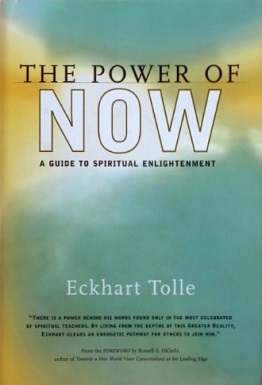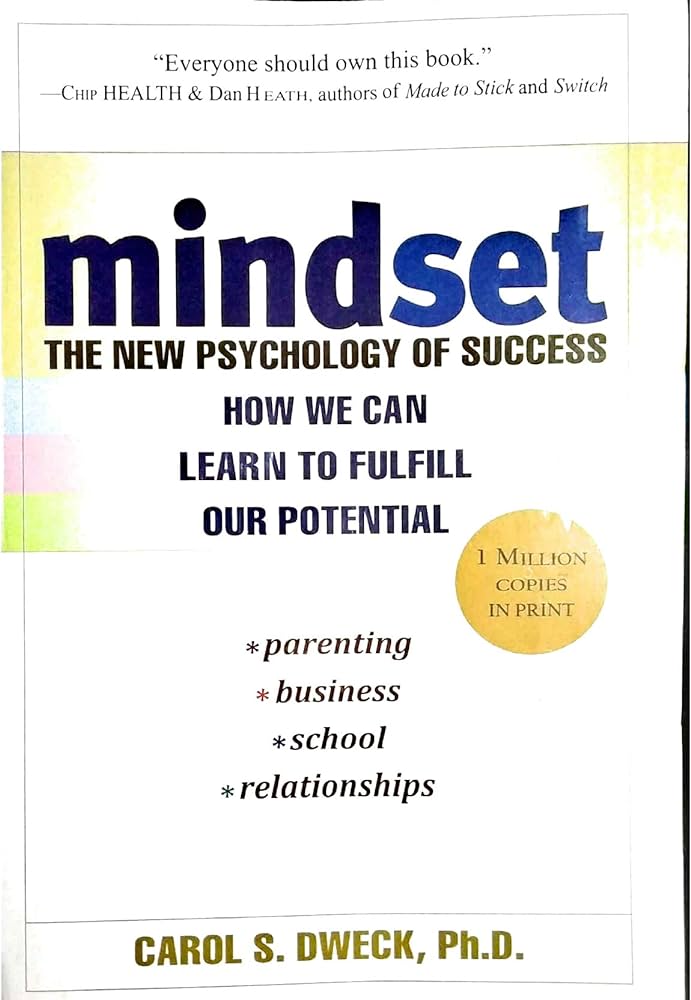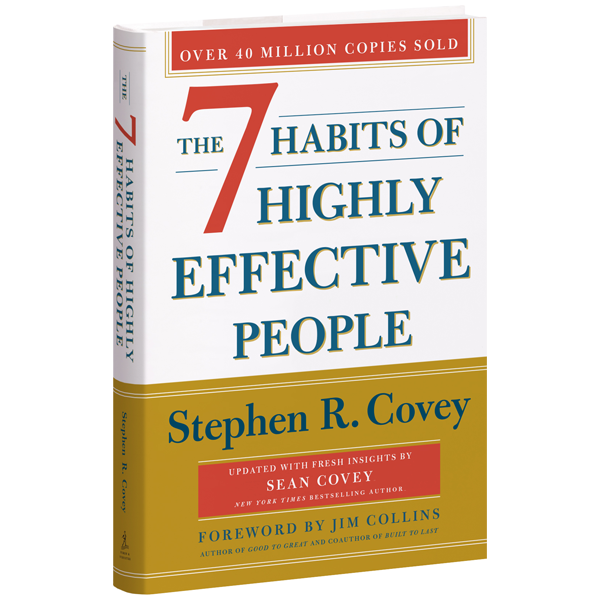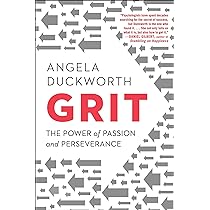Here are seven highly recommended books for personal development:
1. **"ATOMIC HABITS" BY JAMES CLEAR**
Atomic Habits,Offers practical strategies for forming good habits, breaking bad ones, and mastering tiny behaviors that lead to remarkable results.
"Atomic Habits: An Easy & Proven Way to Build Good Habits & Break Bad Ones" by James Clear is a book that explores the science behind habits and provides practical strategies for creating positive changes in your life. Here are the key concepts and takeaways from the book:
1. **The Power of Atomic Habits**:
- **Small Changes, Big Results**: Clear argues that tiny, incremental changes in habits, or "atomic habits," can lead to significant improvements over time.
- **Compound Effect**: Similar to compound interest, small habits compounded over time can lead to remarkable outcomes.
2. **The Four Laws of Behavior Change**:
- **Cue**: Make it obvious. Create cues that trigger your desired behavior.
- **Craving**: Make it attractive. Associate your habit with a positive feeling or reward.
- **Response**: Make it easy. Simplify the process of performing the habit.
- **Reward**: Make it satisfying. Reward yourself after completing the habit to reinforce it.
3. **Breaking Bad Habits**:
- **Identification**: Identify the cues, cravings, and rewards associated with your bad habits.
- **Reframing**: Reframe your mindset around the habit to make it less appealing.
- **Replacement**: Replace the bad habit with a more positive behavior that satisfies the same craving.
4. **Building Good Habits**:
- **Start Small**: Begin with a small, manageable habit to build momentum.
- **Incremental Progress**: Focus on getting 1% better each day rather than aiming for perfection.
- **Environment Design**: Structure your environment to make good habits easier and bad habits more difficult.
5. **The Role of Identity**:
- **Identity-Based Habits**: Adopt a new identity that aligns with your desired habits. For example, if you want to be a runner, start by thinking of yourself as a runner.
- **Behavior Reinforces Identity**: Your habits reinforce your identity, and vice versa. By changing your habits, you can change your identity.
6. **Habit Tracking and Accountability**:
- **Habit Tracking**: Keep track of your habits to monitor progress and stay motivated.
- **Accountability**: Share your goals and progress with others to increase your commitment and likelihood of success.
7. **Maintaining Habits**:
- **Habit Stacking**: Link your new habit with an existing habit to make it easier to remember and perform.
- **Avoiding Overload**: Focus on changing one habit at a time to avoid overwhelming yourself.
- **Review and Adjust**: Regularly review your habits and adjust them as needed to stay on track.
"Atomic Habits" provides a comprehensive framework for understanding how habits work and how to create lasting change. By focusing on small, incremental improvements and understanding the science behind behavior change, you can build habits that lead to a happier, healthier, and more successful life.
2. **"THE POWER OF NOW" BY ECKHART TOLLE**
The power of now, Focuses on living in the present moment as a way to achieve spiritual enlightenment and personal transformation.
"The Power of Now: A Guide to Spiritual Enlightenment" by Eckhart Tolle is a spiritual book that emphasizes the importance of living in the present moment. Here are the key concepts and takeaways from the book:
1. **The Present Moment**:
- **The Importance of Now**: Tolle argues that the present moment is the only moment that truly exists and that dwelling on the past or worrying about the future can lead to suffering.
- **Being Present**: He suggests that by focusing on the present moment, you can find peace and happiness.
2. **The Ego**:
- **Identification with the Mind**: Tolle discusses how the ego, or the sense of self, is often tied to the thoughts in our mind. This identification with the mind can lead to unhappiness and discontent.
- **Transcending the Ego**: He suggests that by observing our thoughts without judgment and realizing that we are not our thoughts, we can transcend the ego and find inner peace.
3. **Awareness**:
- **Conscious Presence**: Tolle encourages cultivating a state of conscious presence, where you are fully aware of your surroundings and your inner state.
- **The "Watcher"**: He introduces the concept of the "watcher," the part of you that can observe your thoughts and emotions without being consumed by them.
4. **Acceptance and Surrender**:
- **Accepting the Present Moment**: Tolle advocates for accepting the present moment as it is, without resistance or judgment.
- **Surrendering to What Is**: He suggests that by surrendering to the present moment, you can find peace and freedom from suffering.
5. **Finding Joy in the Present**:
- **Joy in Being**: Tolle argues that true joy and fulfillment come from being fully present and connected to the essence of who you are.
- **Freedom from Mental Patterns**: By breaking free from habitual thought patterns, you can experience a deeper sense of peace and joy.
6. **Practical Applications**:
- **Mindfulness Practices**: Tolle offers practical exercises and meditations to help cultivate presence and awareness in everyday life.
- **Letting Go of Resistance**: He suggests that by letting go of resistance to the present moment, you can reduce suffering and find peace.
7. **Spiritual Awakening**:
- **Awakening to Your True Nature**: Tolle suggests that by transcending the ego and living in the present moment, you can experience a spiritual awakening and a deeper connection to the universe.
"The Power of Now" has resonated with many readers seeking spiritual growth and inner peace. Its teachings offer a path to living a more fulfilling and enlightened life by embracing the power of the present moment.
3. **"MINDSET: THE NEW PSYCHOLOGY OF SUCCESS" BY CAROL S. DWECK**
Mindset: the new physiology of success, Explores the concept of "fixed" vs. "growth" mindsets and how adopting a growth mindset can lead to greater success and fulfillment.
"Mindset: The New Psychology of Success" by Carol S. Dweck explores the concept of mindsets and their impact on all aspects of a person’s life. Dweck introduces two primary types of mindsets: the fixed mindset and the growth mindset. Here are the key concepts and takeaways from the book:
1. **Fixed Mindset**:
- **Belief in Static Abilities**: Individuals with a fixed mindset believe that their abilities, intelligence, and talents are fixed traits and cannot be changed.
- **Avoidance of Challenges**: They tend to avoid challenges because they fear failure and want to appear competent.
- **Negative Response to Feedback**: They often ignore constructive criticism and see it as a personal attack.
- **View of Effort**: They believe that effort is a sign of weakness because truly talented people should not need to try hard.
- **Threatened by Others' Success**: They feel threatened by the success of others and may become defensive or jealous.
2. **Growth Mindset**:
- **Belief in Development**: Individuals with a growth mindset believe that abilities and intelligence can be developed through dedication and hard work.
- **Embracing Challenges**: They see challenges as opportunities to learn and grow.
- **Positive Response to Feedback**: They welcome feedback and use it to improve.
- **View of Effort**: They understand that effort is a necessary part of mastering skills and achieving success.
- **Inspiration from Others' Success**: They find inspiration and lessons in the success of others, seeing it as a source of motivation.
3. **Impact of Mindsets**:
- **Academics**: Students with a growth mindset tend to perform better and are more resilient in the face of academic challenges.
- **Sports and Arts**: Athletes and artists with a growth mindset are more likely to achieve higher levels of performance through persistent practice and learning from failures.
- **Business and Leadership**: Leaders with a growth mindset foster innovation and resilience within their teams, encouraging a culture of learning and improvement.
4. **Cultivating a Growth Mindset**:
- **Self-Awareness**: Recognize your own mindset and the situations where you might fall into a fixed mindset.
- **Embrace Challenges**: Actively seek out and embrace challenges, viewing them as opportunities to grow.
- **Learn from Criticism**: Accept constructive criticism as valuable feedback and use it to make improvements.
- **Value Effort**: Understand that effort and perseverance are key to developing skills and achieving success.
- **Celebrate Others' Success**: Learn from and be inspired by the achievements of others.
5. **Applications of Growth Mindset**:
- **Parenting**: Encourage children to develop a growth mindset by praising effort, persistence, and improvement rather than innate talent.
- **Education**: Teachers can promote a growth mindset by creating a learning environment that values effort and resilience.
- **Workplace**: Employers and managers can foster a growth mindset by encouraging continuous learning and recognizing the importance of effort and collaboration.
Dweck’s book demonstrates that adopting a growth mindset can lead to greater achievement, resilience, and a more fulfilling life. By shifting from a fixed to a growth mindset, individuals can unlock their potential and continuously improve in all areas of life.
4. **"THE 7 HABITS OF HIGHLY EFFECTIVE PEOPLE" BY STEPHEN R. COVEY**
The seven habits of Highly Effective People, A classic in personal development that outlines seven habits that can lead to personal and professional effectiveness.
"The 7 Habits of Highly Effective People" by Stephen R. Covey is a highly influential book that outlines key habits for personal and professional effectiveness. Here are the seven habits, along with brief explanations:
1. **Be Proactive**:
- **Take Initiative**: Focus on what you can control and take responsibility for your actions and attitudes.
- **Response-ability**: Choose your response to any given situation instead of reacting impulsively.
2. **Begin with the End in Mind**:
- **Vision and Goals**: Define clear personal and professional goals based on your values and long-term vision.
- **Mission Statement**: Create a personal mission statement to guide your actions and decisions.
3. **Put First Things First**:
- **Prioritization**: Focus on important tasks that contribute to your goals rather than getting caught up in urgent but less significant activities.
- **Time Management**: Use a quadrant system to categorize tasks based on their urgency and importance.
4. **Think Win-Win**:
- **Mutual Benefit**: Strive for solutions and agreements that benefit all parties involved.
- **Abundance Mentality**: Believe that there are enough resources and opportunities for everyone to succeed.
5. **Seek First to Understand, Then to Be Understood**:
- **Empathic Listening**: Listen actively and with empathy to understand others' perspectives before expressing your own.
- **Clear Communication**: Communicate your thoughts and feelings effectively after fully understanding the other person's viewpoint.
6. **Synergize**:
- **Teamwork and Collaboration**: Leverage the strengths of diverse team members to create better solutions than any individual could achieve alone.
- **Creative Cooperation**: Value differences and work together to produce innovative results.
7. **Sharpen the Saw**:
- **Continuous Improvement**: Regularly renew and improve yourself in four key areas: physical, mental, emotional, and spiritual.
- **Balance and Renewal**: Maintain a balanced lifestyle that promotes overall well-being and effectiveness.
Covey's seven habits focus on developing a proactive mindset, setting clear goals, prioritizing effectively, fostering positive relationships, communicating empathetically, working collaboratively, and continuously improving oneself. By integrating these habits into daily life, individuals can enhance their personal and professional effectiveness.
5. **"HOW TO WIN FRIENDS AND INFLUENCE PEOPLE" BY DALE CARNEGIE**
How to win friends and influence people, Offers timeless advice on how to connect with others, build relationships, and achieve success in both personal and professional life.
"How to Win Friends and Influence People" by Dale Carnegie is a classic self-help book that provides timeless principles for improving interpersonal skills and building strong relationships. Here are some key principles and takeaways from the book:
1. **Fundamental Techniques in Handling People**:
- **Don't criticize, condemn, or complain**: Criticism can often lead to resentment. Instead, try to understand the reasons behind someone's behavior.
- **Give honest and sincere appreciation**: People crave appreciation and recognition. Sincere compliments can go a long way.
- **Arouse in the other person an eager want**: Focus on what others want and show them how they can get it.
2. **Six Ways to Make People Like You**:
- **Become genuinely interested in other people**: Show curiosity and interest in others' lives and experiences.
- **Smile**: A simple smile can create a positive impression and make interactions more pleasant.
- **Remember that a person's name is, to that person, the sweetest sound in any language**: Use people's names frequently to make them feel valued and respected.
- **Be a good listener. Encourage others to talk about themselves**: Listening actively and attentively makes others feel heard and appreciated.
- **Talk in terms of the other person's interests**: Engage in conversations about topics that interest the other person.
- **Make the other person feel important—and do it sincerely**: Show genuine appreciation and recognition for others' contributions and qualities.
3. **How to Win People to Your Way of Thinking**:
- **Avoid arguments**: Arguments rarely lead to positive outcomes. Seek common ground and mutual understanding instead.
- **Show respect for the other person's opinions. Never say, 'You're wrong'**: Respectful disagreement fosters more productive discussions.
- **If you are wrong, admit it quickly and emphatically**: Acknowledging your mistakes demonstrates humility and integrity.
- **Begin in a friendly way**: Approach conversations with a positive and friendly attitude.
- **Get the other person saying 'yes, yes' immediately**: Start with points of agreement to create a positive momentum.
- **Let the other person do a great deal of the talking**: Allow others to express their thoughts and ideas fully.
- **Let the other person feel that the idea is theirs**: Encourage others to take ownership of ideas and solutions.
- **Try honestly to see things from the other person's point of view**: Empathy can bridge gaps and foster understanding.
- **Be sympathetic with the other person's ideas and desires**: Show empathy and understanding towards others' perspectives.
- **Appeal to the nobler motives**: Appeal to people's sense of integrity and their desire to do good.
- **Dramatize your ideas**: Make your points more compelling by using stories and vivid examples.
- **Throw down a challenge**: Inspire motivation and engagement by presenting challenges or goals.
4. **Be a Leader: How to Change People Without Giving Offense or Arousing Resentment**:
- **Begin with praise and honest appreciation**: Start feedback with positive comments.
- **Call attention to people's mistakes indirectly**: Use subtle cues rather than direct criticism.
- **Talk about your own mistakes before criticizing the other person**: Sharing your own errors can make others more receptive to feedback.
- **Ask questions instead of giving direct orders**: Encourage others to come up with solutions and take ownership.
- **Let the other person save face**: Avoid embarrassing or humiliating others.
- **Praise the slightest improvement and praise every improvement**: Frequent and specific praise encourages continued effort.
- **Give the other person a fine reputation to live up to**: Express confidence in others' abilities.
- **Use encouragement. Make the fault seem easy to correct**: Frame feedback in a positive and constructive manner.
- **Make the other person happy about doing the thing you suggest**: Create a sense of enthusiasm and willingness to act.
Carnegie's principles focus on empathy, respect, and positive reinforcement, making them effective tools for building strong relationships and influencing others positively.
6. **"GRIT:
Grit,The Power of Passion and Perseverance" by Angela Duckworth** - Explores the role of grit and perseverance in achieving long-term goals and success."Grit: The Power of Passion and Perseverance" by Angela Duckworth is a seminal book on personal development that explores the concept of grit and its role in achieving long-term success. Here are key concepts and takeaways from the book that can help with personal growth:
1. **Definition of Grit**: Duckworth defines grit as a combination of passion and perseverance. It’s about having a long-term vision and the unwavering determination to achieve it despite obstacles and setbacks.
2. **The Importance of Effort**: The book emphasizes that talent alone is not enough to achieve success. Effort plays a crucial role. Duckworth presents a formula: Talent x Effort = Skill and Skill x Effort = Achievement. This highlights that effort counts twice in achieving success.
3. **Passion**: Passion involves having a deep interest in what you do. It's not just about fleeting enthusiasm but a sustained and enduring commitment to your interests. Duckworth encourages finding what you love and pursuing it with dedication.
4. **Perseverance**: Perseverance is about sticking with your goals and continuing to work hard, even in the face of difficulties. It involves resilience, the ability to bounce back from failures, and the determination to keep going.
5. **Growth Mindset**: Inspired by Carol Dweck's concept of a growth mindset, Duckworth discusses the importance of believing that abilities can be developed through hard work and dedication. A growth mindset fosters resilience and a willingness to learn from mistakes.
6. **Deliberate Practice**: The book highlights the importance of deliberate practice, which involves setting specific goals, focusing intensely, receiving immediate feedback, and working on weaknesses. This kind of practice is essential for improvement and mastery.
7. **Purpose and Meaning**: Duckworth emphasizes that having a sense of purpose can drive grit. When you see your work as meaningful and aligned with a larger purpose, you are more likely to stay committed and persevere.
8. **Hope and Optimism**: Gritty individuals maintain hope and optimism, even when faced with challenges. This positive outlook helps them to persist and find ways to overcome obstacles.
9. **Developing Grit**: Duckworth suggests that grit can be cultivated by fostering a growth mindset, finding passion, setting long-term goals, and practicing perseverance. She also highlights the role of supportive environments, mentors, and communities in developing grit.
10. **Parental and Educational Influence**: The book discusses how parents, educators, and leaders can help nurture grit in children and students by encouraging a growth mindset, providing opportunities for deliberate practice, and supporting their passions.
In essence, "Grit" provides a framework for understanding the importance of passion and perseverance in achieving personal and professional goals. It encourages readers to adopt a gritty approach to their endeavors, fostering resilience, continuous improvement, and long-term success.
7. **"YOU ARE A BADASS" BY JEN SINCERO** -
You are a badass A motivational and practical guide to creating the life you want, overcoming self-doubt, and embracing your inner power.
"You Are a Badass: How to Stop Doubting Your Greatness and Start Living an Awesome Life" by Jen Sincero is a popular book in the realm of personal development. Here are some key concepts and takeaways from the book that can help with personal growth:
1. **Self-Love and Confidence**: Sincero emphasizes the importance of self-love and self-acceptance. She encourages readers to appreciate their unique qualities and strengths, which is fundamental for building confidence and pursuing goals.
2. **Mindset Shift**: The book stresses the power of positive thinking and the need to shift one's mindset from negativity and self-doubt to positivity and possibility. This includes reframing negative thoughts and beliefs that hold you back.
3. **Taking Action**: Sincero encourages readers to take bold actions toward their goals. She argues that waiting for the perfect moment or until you feel completely ready is a form of procrastination. Instead, she advises taking imperfect action and learning along the way.
4. **Overcoming Fear**: The book addresses common fears that prevent people from achieving their potential, such as fear of failure, fear of success, and fear of judgment. Sincero provides strategies for facing and overcoming these fears.
5. **Setting Goals and Intentions**: Clear goal-setting is highlighted as a crucial step in personal development. Sincero advocates for setting specific, measurable, achievable, relevant, and time-bound (SMART) goals and staying committed to them.
6. **Embracing Change**: Personal growth often requires stepping out of your comfort zone. Sincero encourages readers to embrace change and uncertainty as opportunities for growth rather than obstacles.
7. **Surrounding Yourself with Positivity**: The influence of your environment and the people around you is significant. Sincero suggests surrounding yourself with positive influences and removing negative ones to support your growth journey.
8. **Gratitude and Visualization**: Practicing gratitude and visualization are tools Sincero recommends for attracting positive outcomes. Visualizing success and being grateful for what you have can help manifest your desires and keep you motivated.
Overall, "You Are a Badass" is a motivational and practical guide that aims to empower readers to take control of their lives, overcome self-imposed limitations, and achieve their full potential.
8. **" THE BIBLE
The Bible is often considered a foundational text for personal development, offering wisdom and guidance on various aspects of life. Here are a few key themes and passages that many find particularly impactful for personal growth:
1. **Wisdom and Guidance**: The Book of Proverbs is rich with practical wisdom on living a virtuous life. For example, Proverbs 3:5-6 advises, "Trust in the Lord with all your heart and lean not on your own understanding; in all your ways submit to him, and he will make your paths straight."
2. **Purpose and Calling**: Jeremiah 29:11 offers reassurance about God's plans for our lives: "For I know the plans I have for you," declares the Lord, "plans to prosper you and not to harm you, plans to give you hope and a future."
3. **Perseverance and Resilience**: The Apostle Paul's letters, particularly in Romans and Philippians, encourage perseverance. Romans 5:3-4 states, "Not only so, but we also glory in our sufferings, because we know that suffering produces perseverance; perseverance, character; and character, hope."
4. **Love and Relationships**: 1 Corinthians 13, often referred to as the "Love Chapter," provides profound insights on the nature of true love, which can be applied to all relationships: "Love is patient, love is kind. It does not envy, it does not boast, it is not proud."
5. **Inner Peace and Anxiety**: Philippians 4:6-7 offers comfort and a practical approach to dealing with anxiety: "Do not be anxious about anything, but in every situation, by prayer and petition, with thanksgiving, present your requests to God. And the peace of God, which transcends all understanding, will guard your hearts and your minds in Christ Jesus."
6. **Forgiveness and Redemption**: The teachings of Jesus in the Gospels emphasize forgiveness and redemption. For instance, Matthew 6:14-15 says, "For if you forgive other people when they sin against you, your heavenly Father will also forgive you. But if you do not forgive others their sins, your Father will not forgive your sins."
7. **Faith and Trust**: Hebrews 11 is known as the "Faith Chapter" and provides numerous examples of individuals whose faith led to remarkable outcomes, encouraging readers to live by faith.
These passages, among many others, provide a spiritual framework for personal development, emphasizing virtues like wisdom, perseverance, love, peace, and faith
These books cover a range of topics from habits and mindset to relationships and motivation, providing valuable insights for personal growth and development.












